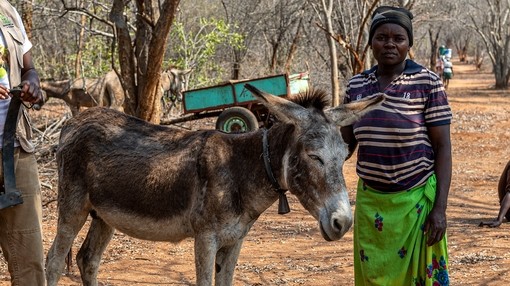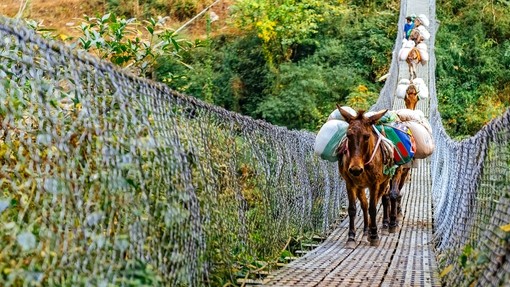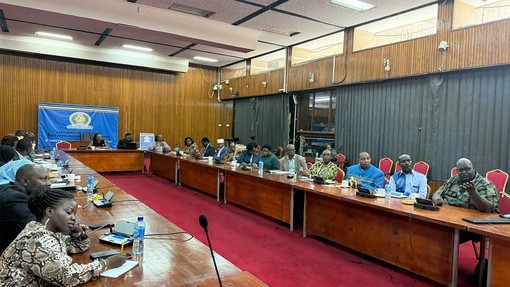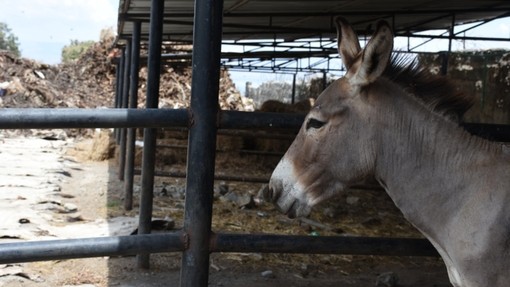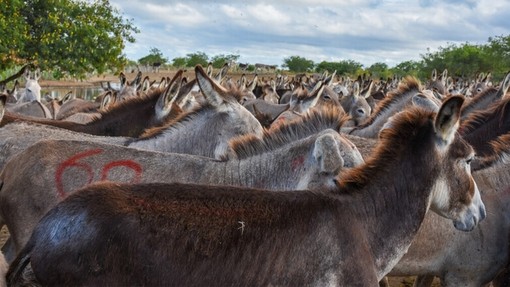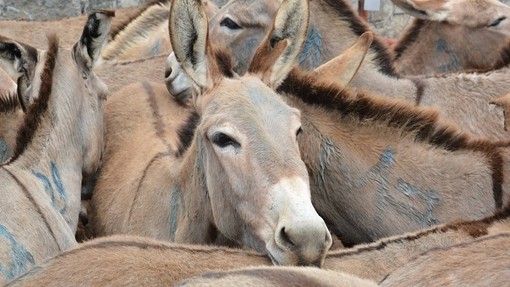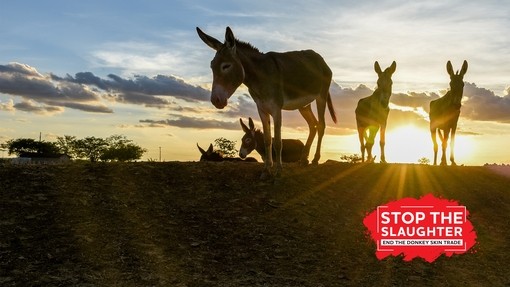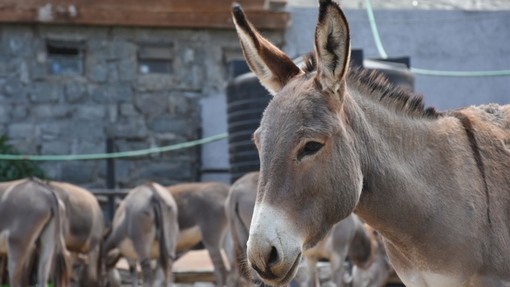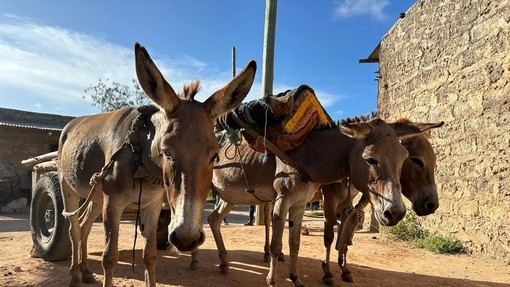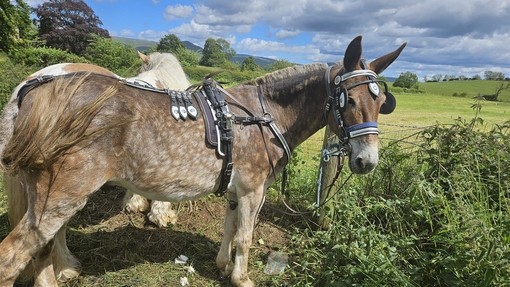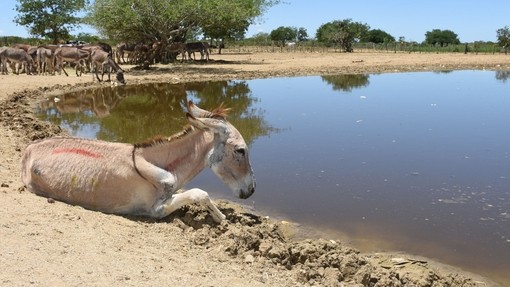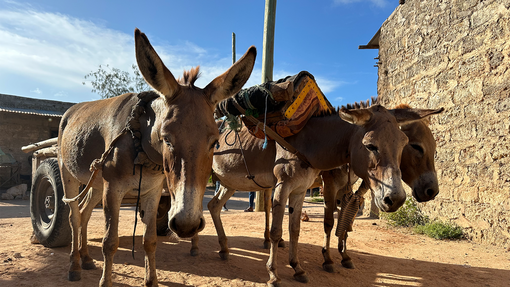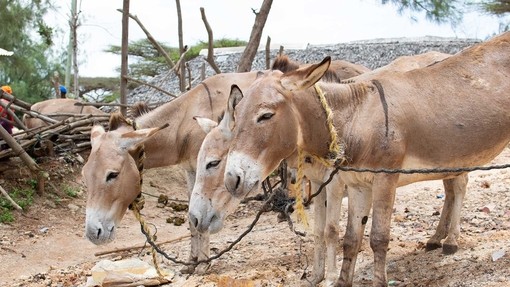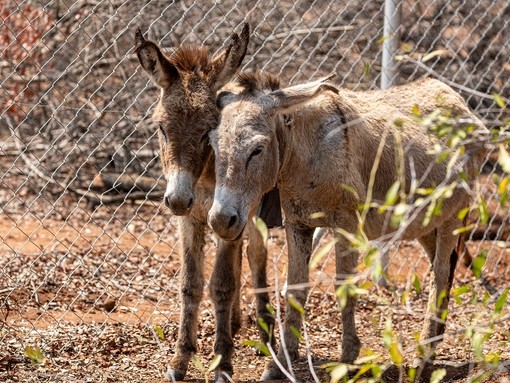
A historic agreement
The historic agreement to ban the slaughter of donkeys for their skins was made on Sunday 18 February 2024 during the 37th African Union Summit in Ethiopia. It represented recognition, at the highest level of decision-making, of the vital importance of donkeys across Africa.
Supporting donkey owners
Throughout Africa, donkeys are a lifeline to communities, especially in rural areas where they transport goods to market, fetch water, help with crops and give children the opportunity to go to school. They offer critical livelihood support and in doing so, help progress towards many of the ambitious UN Sustainable Development Goal targets.
The Donkey Sanctuary has partnered and campaigned for many years to bring about an end to the global trade in donkey skins. At the same time, demand for ejiao, the Traditional Chinese Medicine made from donkey gelatine and marketed as a luxury product, has continued to escalate.
Last year, we published figures that show at least 5.9 million donkeys face slaughter every year in the name of ejiao. This figure is expected to keep rising, stripping more families and communities of their animals, diminishing their chances of building a livelihood or gaining an education.
The Executive Decision by Africa’s Heads of State was a major milestone that has heralded a new era for donkey protection - in Africa and around the world.
When the African Union’s Commissioner for Agriculture, Rural Development, Blue Economy and Sustainable Environment, Her Excellency Josefa L.C. Sacko, wrote to all states last year, it was to urge immediate action to honour the ban and protect donkey populations, enhance food security, secure livelihoods and foster sustainable economic growth.
The power of partnership
Even with such powerful voices, policy change takes time. Advocating for the implementation of a decision of this magnitude across a continent as diverse as Africa, requires building relationships, forging partnerships and making an evidence-based case, time and again.
Following the AU decision The Donkey Sanctuary had the honour of being invited to some of the most influential decision-making fora on the continent, including the East Africa Legislative Assembly (EALA). We spoke of the need to safeguard donkey populations and enhance animal welfare. And we have been heard - when EALA reconvenes this year, the agenda will include deliberating on possible options to support the implementation/domestication of the moratorium in the legislative framework of countries in the region.
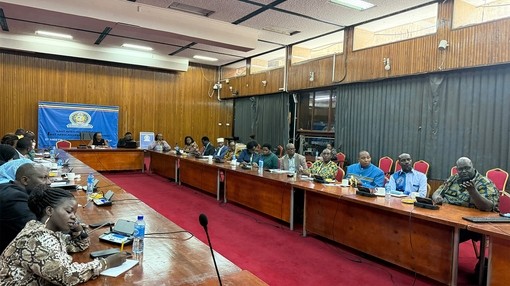
Together with our partners in the International Coalition for Working Equids (ICWE), we are working closely with the African Union’s Inter-African Bureau for Animal Resources (AU-IBAR) on a Pan-African Donkey Strategy for the Development and Management of Donkeys in Africa. This will be presented to key decision-makers from across in Africa in June when we co-host the second Pan-African Donkey Conference in Cote D’Ivoire.
Building momentum
Ending the skin trade means fighting on many fronts. For a long time The Donkey Sanctuary has looked for ways to disrupt the trade and has found powerful allies in the transport sector. When the world’s largest international airline, Emirates, announced a ban on the carriage of donkey skins on all its flights, it was not only a sign of its commitment to tackling wildlife crime but also recognition of the momentous decision by Africa’s Heads of State.
Across and beyond Africa, The Donkey Sanctuary has been engaging international crime-fighting organisation, Interpol to spotlight the parallels between the donkey skin trade and global wildlife crime. Skins can be trafficked with other wildlife products and linked to other forms of serious organised criminality. In May last year we ran the first in what we plan to be a series of workshops highlighting the link between the skin trade and organised crime, educating border and law enforcement staff in the Southern African Bureau of Interpol.
With such powerful advocates, momentum is building against the trade. The African Union’s moratorium on the slaughter of donkeys has united allies across many sectors, setting in motion a series of developments that will seriously disrupt the global trade.
Last year was the time for decision, this year is the time for action to begin. One year on, Africa’s leaders are taking decisive steps to bring an end to this cruel and unsustainable trade on the continent that is hardest hit.
Share this page
Tags
- News

